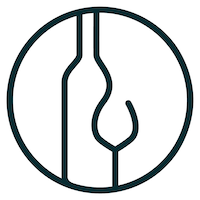
The hospitality industry in Australia is diverse, fast-growing, and fast-paced. If you’re interested in working in hospitality, you can excel and grow your career in this exciting industry with training and hard work. You can work in cafés, coffee shops, restaurants, hotels, bars, and more. Certified training is vital to the hospitality industry to help you get your foot in the door and ensure the health and safety of customers. Consider taking a course such as responsible service of alcohol, food safety, bartending, or a barista course. These unique skills will help you keep customers happy and ensure the success of your establishment.
Learn Practical Hospitality Skills and the Theory
Many certifications offer a combination of theoretical and practical skills. It’s not only learning how to practice these skills, but also why you should. Knowing why, for example, food should be kept at certain temperatures and what can happen if they aren’t, gives you a broader understanding of how important it is and what can happen if such food safety measures aren’t practised. Solely hands-on courses may not have a theoretical component but will still require a competency-based assessment.
Starting Your Hospitality Career
Depending on your particular area of interest, there are a variety of courses to consider. While researching potential hospitality certifications, consider the length of the course, is it recognised, and whether it applies to your particular state or territory. To add to your certificate, looking for mentorship and accepting additional on-the-job training to learn how to respond to customer inquiries and complaints and anticipate their needs is always a good idea.
Hospitality Certifications To Consider
If you’re unsure about your goals, you may find choosing the right hospitality course to be a challenge. You could start with a specialised short course and then build on it with additional certifications as your career progresses. Or you could start with a more comprehensive course that covers a much broader range of topics.
Later, as you gain experience and develop interests in specific areas of the industry, you could consider shifting your focus or expanding your skill set through additional certifications. Just remember that continuing education is essential for staying up-to-date with industry trends and maintaining your competitive edge.
Hospitality courses to consider:
Food Safety and Handling
This course can be used in restaurants, cafes, hotels, bars, functions, events, clubs, and more. You’ll learn how to safely prepare and store food, how to serve it, display it, and dispose of it to prevent food-borne illness. This course is critical for anyone who will be in contact with food and items that are in contact with food.
Responsible Service of Alcohol and Bartending
Serving alcohol responsibly is a legal requirement, and it shows that a business is committed to the safety of its customers. A responsible service of alcohol course will teach you about alcohol and the law, refusal of service, and responsible service. Bartending courses will teach you how to prepare cocktails, pour beer, wine knowledge, and bar operations.
Barista Certification
There’s a lot to becoming a barista, and there are a few courses to choose from. You’ll want to choose a course that teaches you not only to pour and brew the perfect coffee, but also how to clean and maintain the equipment, safe food handling practices, latte art, and milk texturing.
Obtaining a recognised qualification is your entry into the exciting world of hospitality. Many jobs actually require such certifications because they give you the skills and knowledge necessary to provide the proficiency and competence needed to ensure the satisfaction and safety of patrons.





